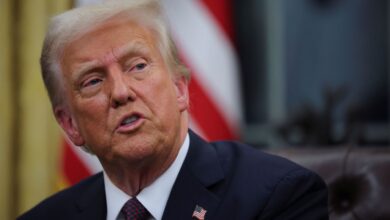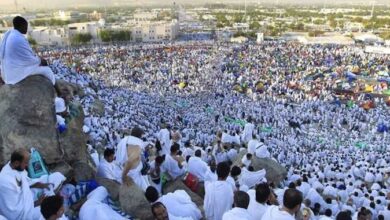
The number of anti-Muslim hate groups in the United States has nearly tripled since 2015, due in part to radical Islamic attacks and the incendiary rhetoric of last year's presidential campaign, the Southern Poverty Law Center says.
The number of anti-Muslim groups increased from 34 in 2015, to 101 in 2016, the SPLC said in a report released Wednesday. The number of hate groups overall tracked by the watchdog group also increased to 917 last year from 892 the previous year, the report said.
"2016 was an unprecedented year for hate," said Mark Potok, a senior fellow at the Southern Poverty Law Center.
The report blamed the increase in part on "incendiary rhetoric" from the campaign of now-President Donald Trump, which included threats to ban Muslim immigrants and "mandate a registry of Muslims in America." It also cited as factors "the unrelenting propaganda of a growing circle of well-paid ideologues" — well-paid employees of anti-Muslim groups, the group said — and radical Islamist attacks such as the June 2016 massacre at a gay nightclub in Orlando, Florida.
The SPLC's findings come as anti-Muslim posters were discovered this week at a mosque in Bossier City, Louisiana, and on the campuses of the University of Texas and Rutgers University.
The Council on American-Islamic Relations wants campus officials to assure the safety of Muslim students and to investigate the mosque posters as a hate crime. "It is clear that these signs, which were used to vandalize a house of worship, are part of a nationwide campaign by racists and Islamophobes to intimidate the American Muslim community," spokesman Ibrahim Hooper said.
The Southern Poverty Law Center, a non-profit organization based in Montgomery, Alabama, monitors the activities of hate groups and other extremists across the country. The SPLC defines hate groups as those that vilify entire groups of people based on immutable characteristics such as race or ethnicity.
"Patriot" or anti-government groups are on the downswing, according to the report. "The groups had skyrocketed from a low of 149 in 2008 to a high of 1,360 in 2012, in large part as a reaction to the November 2008 election of Barack Obama," the report said.
But now the number of Patriot groups is falling, dropping from 998 in 2015, to 623 last year. Militias, which the report called the "armed wing of the Patriot movement," also fell from 276 to 165 groups.
Black separatist groups grew from 180 in 2015, to 193 last year, as did neo-Confederate groups, which rose from 35 to 43 groups.
The number of Ku Klux Klan groups fell from 190 in 2015, to 130 in 2016. The report said contraction was expected among Klan groups, which had more than doubled from 72 in 2014.




